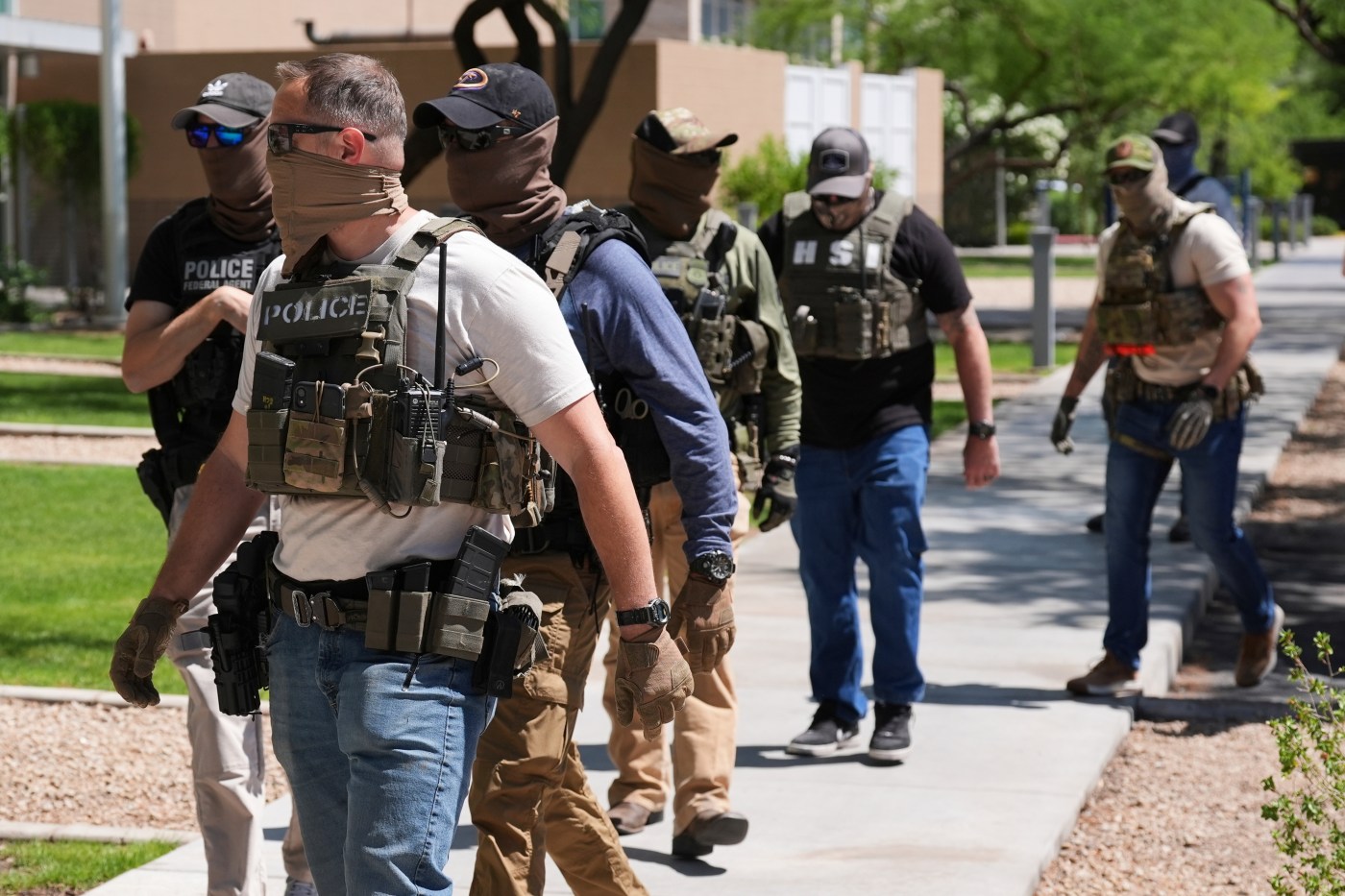
Pozniak: ICE arrest methods harming reputation
The US Immigration and Customs Enforcement (ICE) agency is facing a significant image and reputation crisis, largely due to viral citizen-recorded videos and news reports capturing aggressive enforcement tactics and verbal threats against citizen bystanders.
One recent incident that garnered national media attention took place in New Bedford involving an ICE agent using a hammer-like tool to break the window of a car to arrest the occupant. In East Boston, a man was videoed being knocked to the ground by agents as he watched them make an arrest. Other bystanders have been verbally attacked for videotaping arrests and asking agents who they work for.
ICE’s acting director Todd Lyons addressed the wearing of masks by ICE agents. He said some have received death threats and been harassed online.
“I’m sorry if people are offended by them wearing masks, but I’m not going to let my officers and agents go out there and put their lives on the line, their family on the line because people don’t like what immigration enforcement is,” he said at a news conference in Boston.
The militarized nature of ICE agents, marked by military-style combat vests and their use of aggressive physical force, has drawn sharp criticism from local and state officials, immigrant rights groups, legal experts, and the public. They see such actions as excessive and unnecessarily violent. These actions undermine the public trust of ICE and in the court of public opinion, once a law enforcement agency loses this trust, they are in an image and reputation crisis.
It’s important to acknowledge that ICE and its agents play a critical role in helping maintain national security and public safety by enforcing immigration laws, combatting illegal immigration and preventing cross-border crime like human trafficking and drug smuggling. However, circulation of these videos on social media and their subsequent amplification by local and national news outlets have further intensified the perception of a group of undisciplined and poorly trained agents operating with impunity.
This reputation crisis has profound implications not just for ICE’s public image but also for its operational effectiveness, trust and respect. As law enforcement leaders have said, public cooperation is essential for any policing body, and as ICE becomes increasingly viewed as an opaque and hostile force, citizens of the Commonwealth may become less willing to engage with or support its effort, even when its actions are essential and legally justified.
If ICE agents continue to use strongman enforcement tactics, fail to wear easily identifiable uniforms and treat the public with threats, intimidation and disdain, their public relations crisis intensifies and further alienates the public. In the era of cell phone footage and real time breaking news, ICE is under an unprecedented level of scrutiny, and the way they choose to respond, act and behave will shape their level of professional trust.
(Rick Pozniak has spent decades as a public relations and crisis communications leader where he prevented and resolved high profile image and reputation crises.)

